What has a meme to do with the lockdown? Well, apparently nothing, if we only consider the definitions.

A lockdown is a state or period in which movement within or access to an area is restricted in the interests of public safety or health.
A meme is an image, video, piece of text, typically humorous in nature, that is copied and spread rapidly by internet users.
In reality, the 2 words share a lot. The lockdown forces people to stay at home, which leads to hours of time spent on social networks.
And to overcome the absolutely boring time, many people just take inspiration from this difficult time to make people laugh.
That's what happened recently during the lockdown in Shanghai. People make memes. They don't have an author, they just come out of nowhere, and go viral. Except when they have an author.
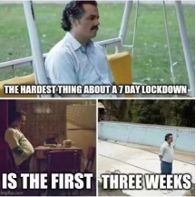
But let's take a little step back. As you might now, since April 1st, nobody in Shanghai is allowed to leave the house for any reason, and people in compounds and buildings set WeChat group chats to share official information and also to help each other finding solution to common problems, such as ...food. Food delivery is often difficult, and in some cases this can become an issue.
Long story short, in one of these Chinese chats people were discussing about how getting food, and one person, writing in Chinese and probably not aware that WeChat has a very easy translator service, wrote in the chat: "We can eat the black guy on the seventh floor", to which the black guy on the seventh floor replied: "Don't eat me", asking then "Why do you want to eat me?" (which is a very polite question, considering the situation).

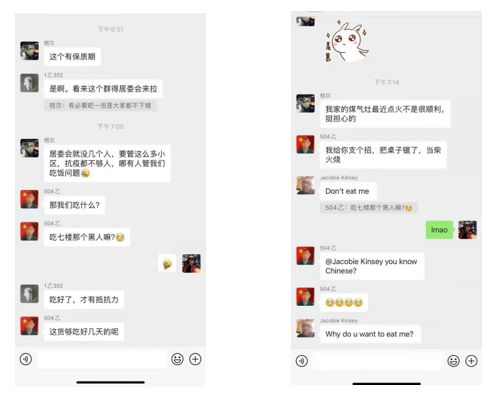
This sentence Don't eat me went viral on wechat and the two guys, both the "cannibal" of the apt 504 and the black guy, are now enjoying a kind of popularity.
Someone sized the opportunity and printed a T-shirt with the hashtag #donteatme, selling it for 70 kuai (around 11 US dollars).
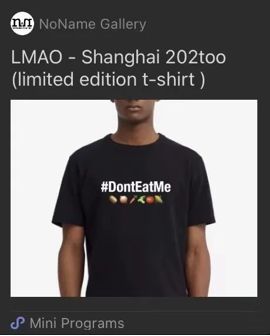
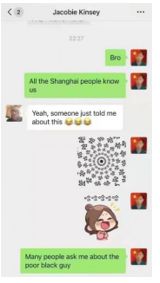
Let's for a moment stay apart from any consideration about cannibalism, and consider that the guy on the 504 was kidding (sometimes jokes become politically incorrect, but that's mainly the point of the comedy).
I suppose that Mr. Kinsey, scared or not to be eaten, now shall be happy of its popularity. From unknow to super-well-known in less than one day.
However, I was curious about how to manage the phenomenon of the meme from a legal point of view: can the situation turn out to be lucrative for Mr. Kinsey from IP perspective? I discussed the topic with Fabio Giacopello, partner at HFG, and here you have Fabio's considerations.
First of all, we shall understand if the sentence "DON'T EAT ME" can be protected as copyright. In reality it is quite arguable if such a simple and short sentence reaches the minimum threshold of artistic value to be regarded as work of art. Is "DON'T EAT ME" poetry?
I believe it is just a common sentence and for a combination of factors: the Shanghai crazy-strict lockdown, the wechat group of that compound having fun with a touch of racism, Mr. Kinsey (the target) being in that wechat group and translating/understanding the Chinese, Mr. Kinsey's courage to intervene and in such a spontaneous way... "DON'T EAT ME". Well, yes, probably this is modern poetry created and consumed in the social media world.
Second question would be: can "DON'T EAT ME" become a trademark? CNIPA does not like too much tagline as trademark. Ask McDonald's the efforts spared to have "I'm loving it" protected or Adidas for "Impossible is nothing". But – yes – this sentence can become a trademark.
And what if someone already filed before Mr. Kinsey? Well, it can be invalidated based on art. 32 TML or even art. 13. The CNIPA is pretty strict nowadays on this kind of bad faith applications.
So, did you hear, Mr. Kinsey? Go for it! HFG can assist you.
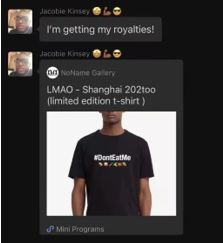
The article was originally published on HFG Law&Intellectual Property website.
The content of this article is intended to provide a general guide to the subject matter. Specialist advice should be sought about your specific circumstances.


